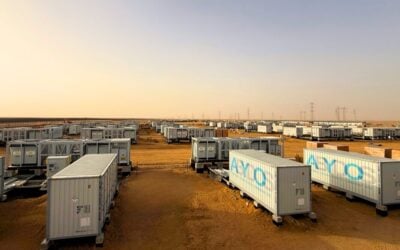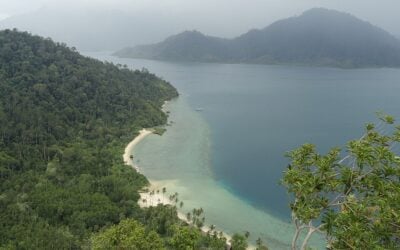Assembly line of Tesvolt, in Lutherstadt Wittenberg, Germany. The company makes devices from 10kWh up to much larger scales. Image: Tesvolt.
German storage manufacturer Tesvolt has been awarded a project to power water pumps in Rwanda with 2.68MWh of battery storage linked to a utility-scale solar system.
The installation, in the Eastern Province of the landlocked African country, is being engineered and built by another German company, system integrator Ideema Solar, including a 3.3MW solar plant. It will power 44 water pumps at an agricultural project through 134 separate lithium-ion battery-based storage systems.
Enjoy 12 months of exclusive analysis
- Regular insight and analysis of the industry’s biggest developments
- In-depth interviews with the industry’s leading figures
- Annual digital subscription to the PV Tech Power journal
- Discounts on Solar Media’s portfolio of events, in-person and virtual
A Tesvolt spokeswoman confirmed to Energy-Storage.News that the project was awarded to the company through a tender.
“The PV plant and storage systems are financed by an international foundation and the government of Rwanda,” the spokeswoman said.
“After the installation the whole system will be donated to the local farmers,” she added, of whom there are 2,000 in extreme poverty in the area local to the project.
Straight out of Solar Valley
Tesvolt, which began manufacturing in 2015 after being launched by solar developer Daniel Hanneman and partner Simon Schandert, makes its lithium iron phosphate battery systems at facilities in Germany and is supported by the development bank of Saxony-Anhalt, the centre of the country’s once-famed Solar Valley. The company recently also completed a commercial scale solar self-consumption system in Britain.
Tesvolt systems use prismatic lithium cells which the company claims are designed to enable high speed charging and an intelligent control system for optimal charge and discharge, it claims. The company also says individual cells can be monitored and replaced in the event of failure. It already has a deal in place to pair its battery systems with SMA equipment. The Rwanda irrigation project will use 402 of SMA’s Sunny Island charge controllers, which it says can enable the aforementioned fast charging and forming a mini-grid which can also provide backup power in the event of outages.
‘Need to constantly invest’
“In Rwanda, the power supply fails three or four times a day for between 5 and 45 minutes. For this reason, an important criterion in the call for tender was that the storage system is able to absorb electricity from the 3.3 MW PV power plant and release it again as quickly as possible,” director of engineering for Tesvolt Schandert said.
Other efforts to electrify and improve the lives of Rwandans through solar include the work of start-up Off-Grid Electric, which raised around US$70 million in 2015 for rural projects in Rwanda and Tanzania and UK firm BBOXX, which achieved the first ever securitisation of African off-grid solar arrays at the beginning of this year.
Rwandan English-language newspaper The New Times reported today that the Eastern Province’s governor, Odette Uwamariya, had said there is “need to constantly invest in water infrastructure” in the region before announcing a fresh set of investment measures in irrigation, water collection and treatment across her jurisdiction that the paper reported could amount to half her government’s annual budget from July.






